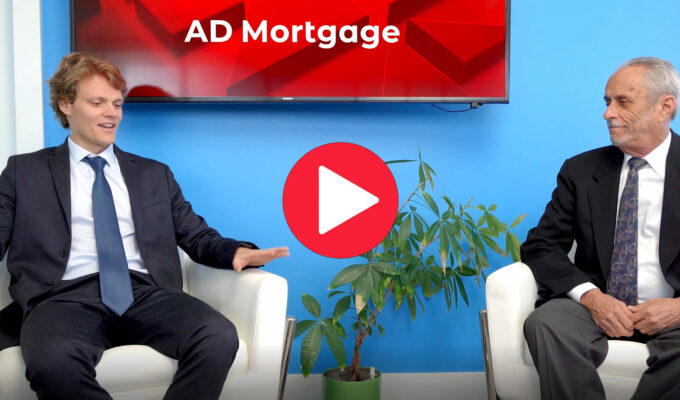A&D Mortgage: Spring into the Non-QM Market

By Max Slyusarchuk, CEO and Founder of A&D Mortgage
This spring, there are market forces in play that could make the home buying process even more challenging, especially for buyers who are in the upper tier of the market or live in higher-priced markets.
GSE Loan Limits and Fees
According to Zillow, home prices are expected to rise by 11% in 2022, bringing the average price of a home in the United States to a figure north of $375,000. In several regions of the country, the price of a home is significantly higher, which means buyers will require larger loan amounts to finance their purchases.
Government Sponsored Enterprises (GSEs) have already raised their conforming loan limits on high balance and second home loans to keep pace, but it still may not be adequate enough for higher-priced homes or markets.
In addition, the Federal Housing Finance Authority (FHFA) has announced its plan to impose new fees on conventional high-balance and second home loans. Beginning April 1, Fannie Mae and Freddie Mac will increase their upfront fees for high balance loans by between 0.25% and 0.75%, tiered by loan-to-value ratio. For second home loans, the upfront fees will increase by between 1.125% and 3.875%. So, borrowers looking for higher-priced homes or investment properties in some markets could be disqualified from convention loans due to the loan limits and pay even more in fees if they can qualify.
As a result of these GSE actions, higher-priced buyers are finding Non-QM loans to be an especially appealing alternative.
High Demand/Short Supply
The housing market was already experiencing high demand and short supply pre-pandemic, but now more renters have entered the housing market in search of a home, which is attracting more real estate investors looking to capitalize on this demand and buying the available inventory of homes.
Supply chain disruption, construction material shortages, and escalating costs of those materials, and labor shortages in residential home construction are also contributing to the rising home prices.
According to First American’s Real Home Price Index, housing affordability has sunk to its lowest level since October of 2008, primarily due to soaring home prices and an uptick in mortgage rates.
Good News/Bad News
The U.S. economy is currently experiencing the effects of inflation. By some estimates, the annual inflation rate surged to 7.1% in December 2021 – the highest rate of inflation since June of 1982 – and this trend is expected to continue well into 2022.
For property owners, inflation is a boon. The value of a home rises concurrently with the rate of inflation, and with supply low and demand high, home sellers can reach for the moon with their asking prices. In many cases, they receive offers for their asking price or often, even above. All of this makes it a great time to sell, but a much more difficult time to buy. Good news for the seller; bad news for the buyer.
But as mentioned above, higher home prices present growth opportunities for the Non-QM market.
Solutions for High-Priced Homes
There are a few recommended options that lenders like A&D Mortgage can offer to remedy this problem, which include Non-QM and Jumbo loan products including:
- DSCR – A typical Non-QM Debt Service Coverage Ratio (DSCR) loan allows a borrower to qualify for a mortgage based on cash flow generated from an investment property – through a rental, for example – as opposed to their personal income.
- Prime Jumbo – Prime Jumbo loans are a financing option for borrowers who intend to purchase a home that exceeds GSE guidelines. Borrowers who cannot qualify for an agency loan because the price of their home is beyond allowable limits, can secure financing with a Prime Jumbo loan. Designed to finance luxury properties and homes in competitive real estate markets.
- Asset Utilization –Non-QM Asset Utilization loans allow borrowers to use their personal assets as a means to qualify for a home mortgage. This loan is suitable for wealthy investors looking to buy higher-priced mansions or multiple properties.
DSCR, Prime Jumbo, and Asset Utilization loans are great options for those borrowers looking to purchase higher-priced homes in expensive housing markets, like Florida, California, New York, and Illinois.
So, this spring, if your clients are in the market to purchase their dream home, a second home, or an investment property, you would be well-served to work with the best Non-QM lender — A&D Mortgage.
For more information about A&D Mortgage, visit www.admortgage.com.





